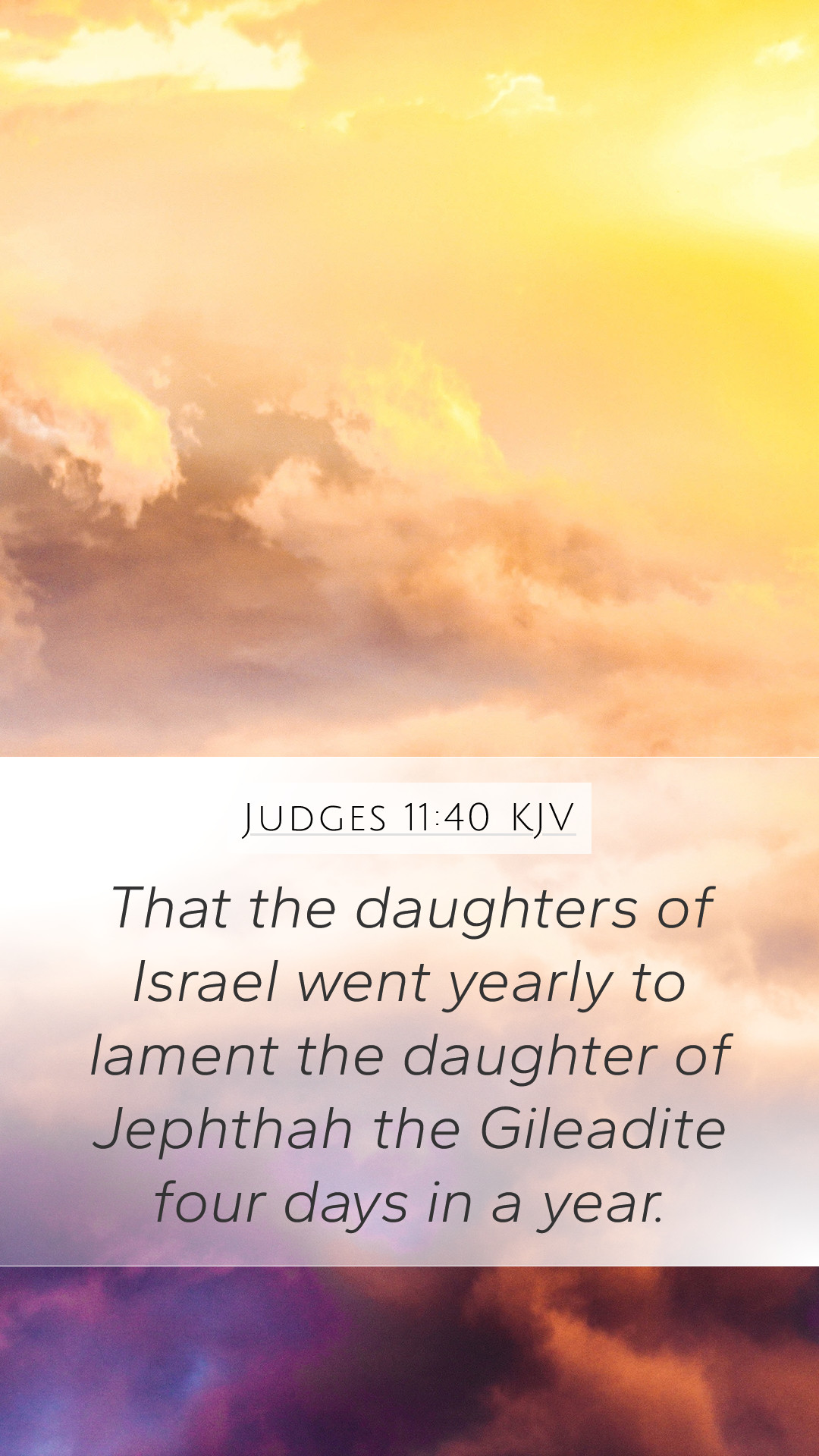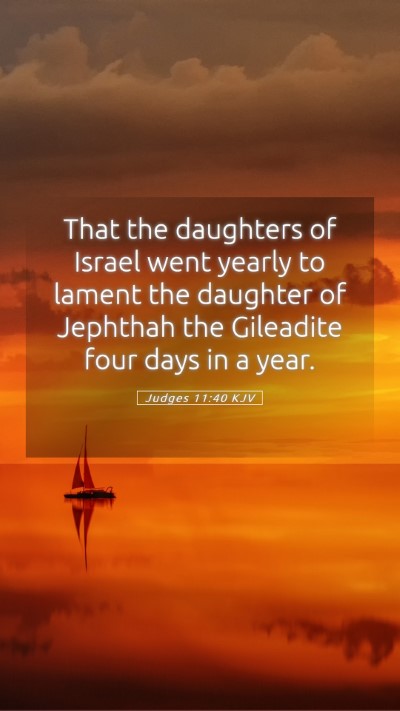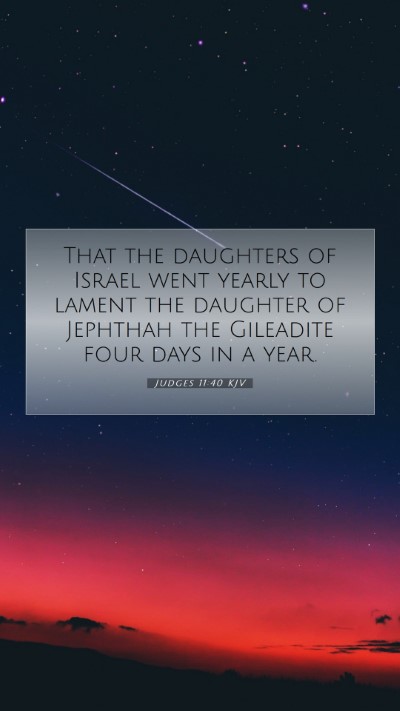Bible Verse Commentary on Judges 11:40
Verse: Judges 11:40 - "That the daughters of Israel went yearly to lament the daughter of Jephthah the Gileadite four days in a year."
Introduction
The verse in Judges 11:40 provides a poignant conclusion to the story of Jephthah, a Judge of Israel, and his tragic vow regarding his daughter. This Bible verse holds significant meaning and cultural relevance, observed annually by the daughters of Israel. Here, we will utilize insights from prominent public domain commentaries to shed light on its implications, historical context, and devotional applications.
Verse Meaning and Interpretations
In Judges 11:40, we see a cultural practice developing in response to a deep personal tragedy. Jephthah’s vow, made hastily in a moment of desperation, led to the sacrifice of his only daughter—a narrative that illuminates several key themes:
- Human Sacrifice: The practice of lamenting the tragic fate of Jephthah’s daughter underscores the seriousness of vows and the consequences tied to them.
- The Role of Women: The daughters of Israel participating in this annual lamentation reflect the communal grief and the role of women in biblical narratives.
- Faith and Folly: Jephthah’s story exemplifies both faith in God’s deliverance and the folly of making rash promises.
Commentary Insights
Matthew Henry's Commentary
Matthew Henry emphasizes the sorrow in this narrative, noting that the daughters of Israel commemorating Jephthah's daughter indicates a recognition of the cultural and spiritual implications of Jephthah's vow. He suggests that this lamentation serves as a warning against making vows that one may later regret, highlighting the gravity of spiritual commitments.
Albert Barnes' Commentary
Albert Barnes provides insights into the historical context of the lamentation. He notes that the practice suggests both a respect for Jephthah's sacrifice and a societal recognition of the tragedy that befell his daughter. He interprets the daughters' yearly visits as a collective mourning that seeks to preserve memory and elicit compassion from future generations.
Adam Clarke's Commentary
According to Adam Clarke, the act of lamenting signifies a deeper loss—not only of life but also of the familial legacy and potential lineage lost with Jephthah’s daughter. Clarke asserts that the lamentation reflects societal norms regarding honor and respect towards those who sacrifice for their community.
Historical and Cultural Context
This verse would have been understood within the context of Israelite culture, where vows to God were taken very seriously, often resulting in dire consequences if not fulfilled. The historical setting of Judges describes a time of chaos in Israel when personal and societal judgments were often made in the context of covenantal relationships with God. Therefore, the story of Jephthah serves as a microcosm of larger themes of power, sacrifice, and the human condition.
Significance in Biblical Exegesis
Judges 11:40 exemplifies the importance of proper interpretation in scripture study. It encourages readers to reflect on the significance of vows and the spiritual rigor required in making commitments to God. It also serves as a catalyst for exploring the consequences of our choices, especially when they arise from emotional turmoil or haste.
Applications in Daily Life
The application of Judges 11:40 extends beyond historical context to modern life. Believers are reminded of the importance of intentionality in their promises and the weight of their words. This text resonates with those engaged in:
- Bible study groups discussing the repercussions of promises made to God.
- Online Bible studies focusing on the lessons drawn from Jephthah's story.
- Bible study tools that aid in understanding difficult passages and their applications to our lives.
Cross References
- Genesis 22:1-14 - Abraham's Test
- Leviticus 27:1-8 - Vows to the Lord
- Ecclesiastes 5:4-5 - Fulfillment of Vows
Conclusion
Judges 11:40 serves as a profound reflection on human experiences and the spiritual lessons that arise from them. Through lamentation, the community connects with their history, acknowledges the gravity of Jephthah's vow, and collectively engages in the mourning process. This verse prompts readers to consider how the meanings of Bible verses can inform their faith and daily practices in tangible ways, reinforcing the essence of biblical exegesis within contemporary life.


